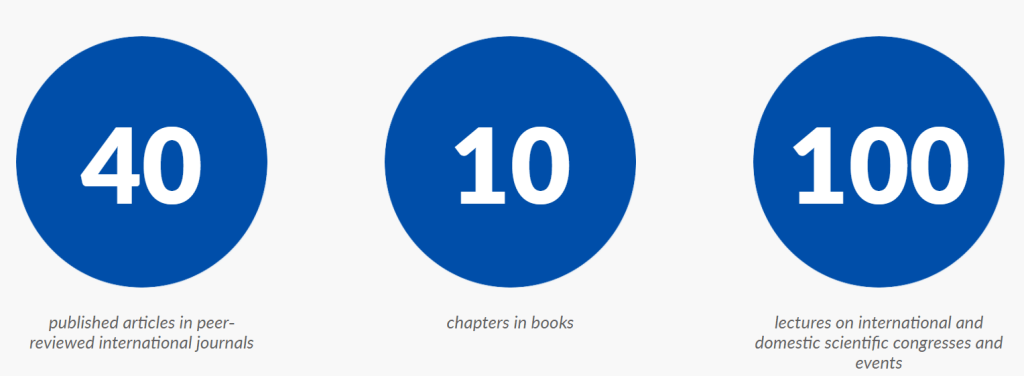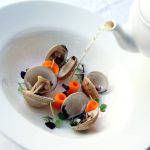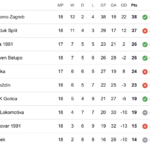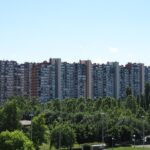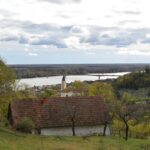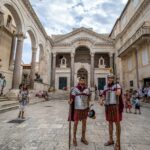Telegram.hr brings a fascinating story about a Croatian orthopaedic surgeon who studied at Harvard and performed a revolutionary surgery at Sveti Duh recently
Telegram.hr published an interview with Dr Alan Ivković, whose fascinating life and career include studying at Harvard and performing the first surgery in the world in which cartilage tissue from the nose was used to repair knee cartilage.
Dr Alan Ivković is a consultant orthopaedic surgeon at the University Hospital “Holy Spirit” in Zagreb. His professional focus is sports Traumatology and Arthroscopy, foot and ankle surgery, as well as tissue engineering and regenerative medicine applications in orthopaedic surgery.
He is the team leader of the Croatian partner in the international consortium within EU FP7 project BIO-COMET (Bioreactor-based, clinically oriented engineering of tissues) and HORIZON 2020 project BIO-CHIP (Bioengineered grafts for cartilage healing in patients). He is a board member of the Croatian Orthopaedic Society and the National EBOT (European Board of Orthopaedic Surgery) delegate. (St. Catherine Polyclinic)
Telegram’s Mladen Pleše spoke to Dr Ivković. The first thing he mentioned is that he was currently working on trying to find out how he could improve his focus and the brain’s efficiency. Together with his American colleague, he concluded that our diets play a crucial role in this.
“We eat too much sugar, food filled with additives and toxins, all of which has a negative effect on how our brains function. Therefore, I have decided to be careful about what I eat,” Dr Ivković said.
Dr Ivković has so many different interests, that it truly isn’t easy to switch from one field to the other while maintaining maximum focus.
In addition to being a surgeon and scientist working on ground-breaking research, he also teaches at Zagreb and Rijeka Schools of Medicine, authors numerous scientific papers, participates at expert congresses, plays in a band, and has a wife and two sons.
alanivkovic.com
Dr Ivković has calculated that he needs exactly six hours of sleep for his body and mind to function properly. He has always been an excellent student and his friends knew that he would have a successful career. Both his parents were also doctors of medicine – his father was an ear, nose, and throat doctor, while his mother was a paediatrician. He has always been interested in natural sciences – chemistry, biology, molecular physics, with DNA presenting a special area of interest for him.
Dr Ivković graduated from the School of Medicine in Zagreb in 1999. He obtained his PhD degree in biomedical sciences in 2009, and the topic of his thesis was the application of gene therapy in articular cartilage repair. He is also an assistant professor at the Department of Biotechnology University of Rijeka where he teaches regenerative medicine and tissue engineering. He has academic affiliations with School of Medicine University of Zagreb and with the Faculty of Health Sciences in Zagreb.
As an International Fulbright Fellow, he spent academic year 2007/2008 in the Centre for Molecular Orthopaedics at Harvard University in Boston, USA. His talent was instantly recognised, so he was offered a position at Harvard or in London, but he decided to go back to Zagreb
“The only positive thing about living abroad is the fact that you can make progress in your career faster. Every other aspect of life is better in Croatia. My friends and family are all here, so I decided to come back and fight,” he says, adding that his uncle Ratko Rudić, water polo coach and the second most successful team sport coach of all time, played a crucial role in his views and attitudes in all segments of life and that, in addition to his father Mladen, Ratko is the most important male figure in his life.
As an official physician of the Croatian Water Polo Federation, Dr Ivković participated in 2012 London Olympic Games (gold medallist), European Championships in Zagreb 2010 (gold medallist) and World Championships in Melbourne 2007 (gold medallist).
Dr Ivković played the piano and the guitar when he was a child, so he now plays bass guitar in a punk band called Kad djeca zaspu (K.D.Z.) together with two architects, a lawyer, and an IT expert.

Kad djeca zaspu, Facebook
They have performed at various clubs and festivals together.

Kad djeca zaspu, Facebook
His wife Jana is also a doctor, so she understands his dedication to his job. They have two children – Jakov, who is 8, and Andre, who is 5.
Dr Ivković has always been interested in scientific work and research, but he also wanted to be a surgeon, so he found his place in a relatively new medical branch – one that connects clinical and scientific work, previously two completely separate fields. Mr Pleše wanted to know had he finds the time to reconcile his scientific work and his everyday obligations at the hospital.
“It’s a real challenge! Working at a clinic means spending time with your patients, so there isn’t a lot of time to do scientific work. However, I have been lucky, so I spend 80% of my time doing clinical work at Sveti Duh Hospital, and 20% of the time I teach at the School of Medicine in Zagreb. It means that I can dedicate at least one day a week to research. Clinical scientists are getting more and more recognition worldwide, but their education lasts longer because they have to learn about the clinical and the scientific principles so they could lead multidisciplinary teams who will be able to put lab discoveries into clinical practice,” Dr Ivković says.
He has worked at Rebro, Sveta Katarina and Sveti Duh hospitals (where he also works right now). His wish is to establish a tissue engineering laboratory and a quality academic centre for translational applied research at Sveti Duh. He would also like to bring scientific work in Croatia to a higher level and make the results of his research as accessible and as cheap as possible.

biochip-h2020.eu
His work became known worldwide recently when he and his team became the first team in the world to perform a surgery of transplanting cartilage from the nose to the knee. A small sample of cartilage cells from the patient’s nose bone was taken, which was then used to grow more cells by exposing them to growth hormone for two weeks. All the cells were then placed in a membrane of collagen and cultured for two more weeks. The engineered graft was then cut into the right shape and used to replace damaged cartilage after it was surgically removed from the patient’s knee.
The technology had been developed for 15 years, there were numerous tests, and after the first 10 patients had been operated on in Basel, Switzerland, Dr Ivković and his team performed the revolutionary surgery in Zagreb.
Dr Ivković cooperated with Dr Ivan Martin, one of the leading experts on tissue engineering, who was the lead researcher during the tests and operations performed in Basel, and whom Dr Ivković met during his time at Harvard.
Finally, Mr Pleše asked Dr Ivković if he was satisfied with the status and the level of investment in scientific research in Croatia.
“Not at all! I am sure that there is a great scientific potential in our country, not only in the area of biomedicine but in other applied sciences as well. Croatia is one of the countries with the lowest level of investment in science and research, together with Bulgaria and Romania, while our neighbouring countries, Slovenia and Serbia, invest two and three times more funds, respectively.
The relationship that the political elite has towards science and innovation is shocking, especially considering the fact that there is a proven positive correlation between investing in science and innovation and GDP growth. Maybe that’s the reason why we have had a practically nonexistent level of GDP growth from 1980 onwards.” Dr Ivković concluded.
Read the full interview here, visit Dr Ivković’s website here, and find out more about his band here.

